Happy Monday! Good news, readers: If you find Crocs are too stylish and youthful, the brand has a new Boat Shoe version, which is perfect for making your friends regret being born with the gift of sight.
Quick Hits: Today’s Top Stories
- The Bureau of Labor Statistics published employment numbers for August on Friday, showing a steep decrease in the pace of hiring from the previous month. Employers added 22,000 jobs last month—well below economists’ consensus expectation of 75,000—and the unemployment rate increased to its highest level in nearly four years: 4.3 percent. The labor force participation ticked up to 62.3 percent, but the hiring slowdown lends credence to the widespread belief that the White House’s trade policies have made businesses reluctant to invest or to hire new workers.
- The Russian military launched its largest drone attack of the war against Ukraine’s government district in Kyiv on Sunday, breaching the Ukrainian capital’s air defenses and damaging government buildings. A total of 805 drones and decoys were launched by Russia, according to the Ukrainian Air Force, along with 13 cruise and ballistic missiles; 60 drones and nine missiles evaded Ukrainian defenses. At least five people, including a child in Kyiv, were killed. The building where Ukraine’s Cabinet meets was also damaged in the attack, which came three days after European leaders pledged to commit troops to a postwar Ukraine as part of security guarantees for the country. U.S. President Donald Trump told reporters following the strikes that he was “not happy with the whole situation,” and threatened to impose additional sanctions on Moscow.
- Israel’s Supreme Court ruled Sunday that the government has deprived Palestinian detainees of adequate food and ordered authorities to improve prison nutrition, with the three-judge panel unanimously finding the state legally obligated to provide prisoners with enough food for “a basic level of existence.” In another 2-1 decision, the high court also affirmed allegations made by two Israeli rights groups, which accused the government of using a “systemic policy” of food deprivation affecting thousands of Palestinian prisoners detained since Israel’s ongoing war against Hamas began. National Security Minister Itamar Ben-Gvir, who oversees the prison system, condemned the decision, vowing that minimal prison conditions would continue unchanged. “Our hostages in Gaza have no High Court to defend them,” he said.
- At roughly 10:15 a.m. this morning local time, two terrorists opened fire on a packed bus at Jerusalem’s Ramot Junction bus stop, killing at least six people and injuring 12 others, six of whom are in critical condition. An IDF soldier and an armed Kollel student killed the two Palestinian terrorists, who came from villages in the West Bank. In response, the IDF has sent more troops to the West Bank. Though Hamas did not claim responsibility for the attack, the terror group said in a statement that it was “a heroic operation” and “a natural response to the occupation’s crimes and war of extermination it is waging against our people,” calling on West Bank Palestinians to “escalate the confrontation with the occupation and its settlers.” On the ground at the scene, Netanyahu declared Israel was in a “mighty war against terror,” and Ben-Gvir suggested Sunday’s court decision had some blame for the attack. Opposition Leader Yair Lapid condemned this, saying the government was blaming the courts “instead of taking responsibility.”
- On Sunday, President Donald Trump wrote on Truth Social that he issued his “last warning” to Hamas to accept a hostage deal, claiming Israel had agreed to his terms. A source close to Prime Minister Benjamin Netanyahu told the Times of Israel that the Israeli government was “seriously considering” the proposal, but hadn’t agreed; whereas leaders of the Hamas terrorist group confirmed receiving “ideas” from the U.S. administration and said they were “ready to immediately sit at the negotiating table.” Separately, the Times of Israel reported Sunday that—under pressure from Trump—Israel had submitted a hostage deal proposal that strays from Netanyahu’s public positions, envisioning a six-month framework aiming to “end the war” through phased hostage releases. The deal does not reject a future role for the Palestinian Authority, and would involve an Israeli withdrawal from Gaza, but does include various requirements—such as the complete disarmament of Hamas and implementation of a “de-radicalization” process in the enclave—that Hamas leadership will likely find unacceptable.
- The South Korean government reached an agreement with the U.S. on Sunday to take back the roughly 300 South Korean nationals detained last week following a large-scale immigration raid at a Hyundai plant in Georgia. Immigration authorities on Thursday detained a total of 475 employees at an electric battery plant in Ellabell, Georgia, operated by the South Korean companies Hyundai and LG Energy Solution. The detained workers will be returned on a charter flight, and South Korea will “push forward measures to review and improve the residency status and visa system for personnel travelling to the United States,” said a South Korean government spokesperson.
- Japanese Prime Minister Shigeru Ishiba announced Sunday that he will leave his post, following a historic defeat for his Liberal Democratic Party in July’s parliamentary election. Members of the center-right LDP, which has been out of power for only a handful of years since its founding in the mid-20th century, had called for Ishiba’s replacement after the summer’s election meant that the LDP lacked a majority in both the upper and lower houses of the Japanese parliament. Ishiba had repeatedly rebuffed such demands, but with a vote on holding an early leadership election looming, he said Sunday that he would begin the process of choosing a new LDP leader.
- Artificial intelligence company Anthropic agreed on Friday to pay a group of authors $1.5 billion to settle a copyright infringement lawsuit. The proposed settlement, which U.S. District Judge William Alsup will consider this week, is the result of an earlier decision by Alsup in which he ruled that Anthropic’s use of copyrighted material to train its large language model was legal, but the use of millions of pirated books on the internet was not. Justin Nelson, the attorney representing the three authors who brought the suit, said the settlement “sends a powerful message to A.I. companies and creators alike that taking copyrighted works from these pirate websites is wrong.” If confirmed, the settlement would stand at more than 10 percent of the amount Anthropic raised in its most recent funding round.
- Voters in Buenos Aires provincial elections dealt Argentinian President Javier Milei a major electoral setback on Sunday, with his La Libertad Avanza party capturing just 34 percent of the vote. The center-left Peronist opposition secured 47 percent of the votes with the majority of ballots counted, delivering a 13-point margin of victory that far exceeded opinion poll predictions in Argentina’s most economically significant province. Milei conceded the “clear defeat,” but vowed to “accelerate” his libertarian reforms ahead of crucial congressional midterms next month, where he needs to expand his party’s tiny minority to fulfill his agenda.
- U.S. District Judge Edward Chen on Friday prevented the Trump administration from revoking the Temporary Protected Status (TPS) of roughly 1.1 million Haitians and Venezuelans, ruling that the administration had acted arbitrarily and capriciously and that Homeland Security Secretary Kristi Noem had exceeded her authority. Around 500,000 Haitians and 600,000 Venezuelans had had their ability to live and work in the U.S. extended by the Biden administration, after the government determined that conditions in their home countries were too dangerous for them to return to. “While this order delays justice, Secretary Noem will use every legal option at the Department’s disposal to end this chaos and prioritize the safety of Americans,” a DHS spokesperson said.
- Maryland Gov. Wes Moore announced “renewed collaboration” between city and state police to deploy in Baltimore on Friday, following weeks of back-and-forth between Moore and Trump over the president’s threats to send federal personnel to the city. “Nothing we do is inspired by the president,” Moore claimed. “We do not need an occupation.” Moore’s move comes a week after California Gov. Gavin Newsom deployed state police in multiple California cities to assist local law enforcement.
A message from Political Wire
Concise. Relevant. To the Point.
Political Wire is where serious political junkies stay ahead. Join thousands of insiders who rely on Taegan Goddard’s exclusive analysis, a 24/7 trending news feed, bonus newsletters and a completely ad-free experience. The site is free to visit and the community is free to join—but membership gives you the edge. Use coupon code “dispatch” for 20% off an annual plan.
Strike One
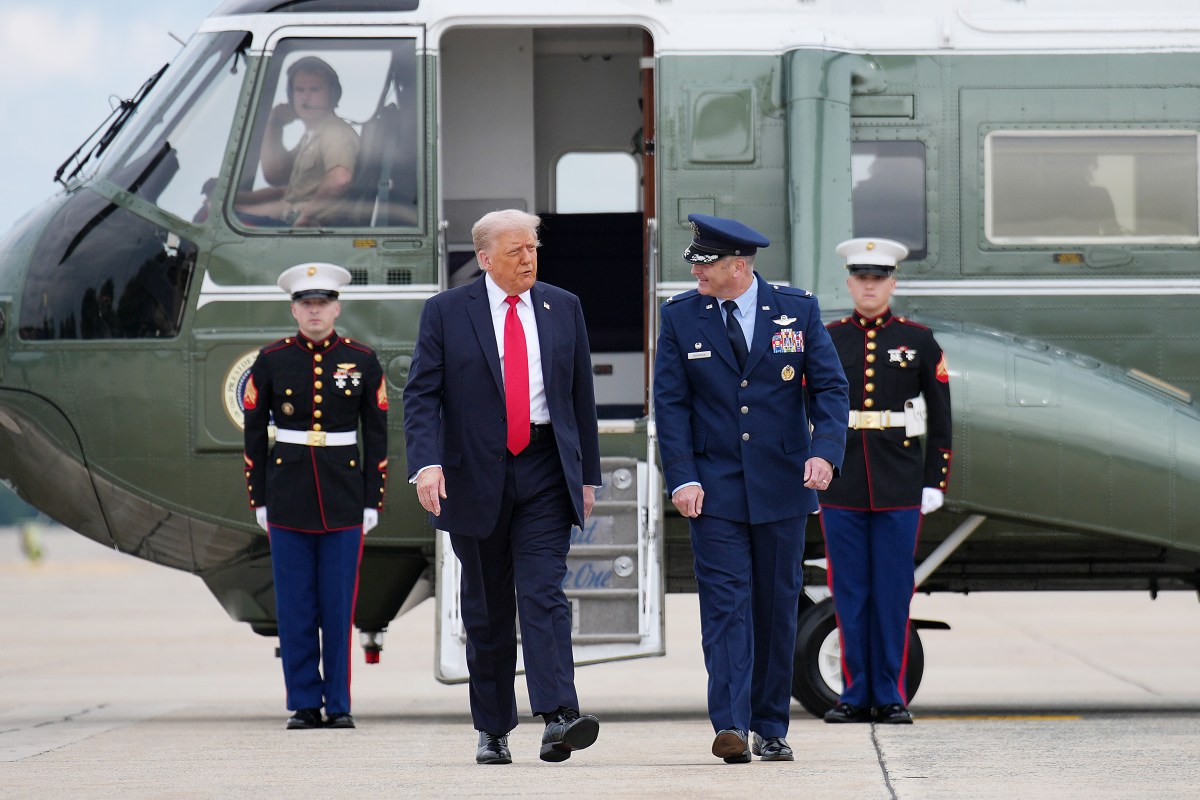
On September 2, President Donald Trump took to Truth Social to share a video of a speedboat cruising across water, with green targeting UI in the frame, until a sudden, blinding flash of white light covers the area where the vessel had just been.
A deadly strike like this would have been relatively unremarkable as part of an ongoing military conflict, but the targets of the strike weren’t members of a foreign armed service or terror group. Instead, they were suspected drug smugglers, with the president writing that he had authorized the strike on the boat transporting 11 “positively identified” members of the Venezuelan-based criminal gang, Tren de Aragua, who he claimed were “transporting illegal narcotics.”
“Please let this serve as notice to anybody even thinking about bringing drugs into the United States of America,” Trump added.
The U.S. military has long played a role in combating drug smuggling in international waters—the Coast Guard and Navy touted one such operation just two months ago—but last week’s strike represented a significant escalation. “In terms of U.S. counter-narcotics operations, this is pretty unprecedented,” Henry Ziemer, an associate fellow at the Center for Strategic and International Studies who studies transnational organized crime, told TMD. “There was clearly no effort to arrest the traffickers, and it was simply [that] the boat was blown up from the sky.”
John Walsh, director of drug policy and the Andes at the Washington Office on Latin America—a research and advocacy nonprofit—agreed. “It’s such an escalation and a departure from normal procedure and operations in drug interdiction missions,” he told TMD. “To go straight from ‘we suspect you’ to ‘we’re firing missiles at you,’ that’s not an enforcement operation, that’s a military kill operation.”
As a non-paying reader, you are receiving a truncated version of The Morning Dispatch. You can read our full item in the members-only version of TMD.
Though the president’s effort to classify foreign gangs as “terrorist organizations” has primarily been in the news for its deportation implications, it also speaks to his administration’s new approach to the cartels. On his first day back in the White House, Trump signed an executive order designating international cartel networks as federally recognized terrorist organizations, authorizing broader government powers to track, sanction, and punish the groups. In his order, Trump said that Tren de Aragua and La Mara Salvatrucha (MS-13), included in the FTO-designation list, conduct “campaigns of violence and terror in the United States and internationally are extraordinarily violent, vicious, and similarly threaten the stability of the international order in the Western Hemisphere.” In the administration’s view, that sanctions violence against them. But will last week’s strike, and those promised to follow, actually disrupt or disincentivize cartel activity?
Historically, the Coast Guard has been primarily responsible for intercepting suspected drug trafficking boats, only using lethal force in cases when the accused turn violent. “They’ll arrest the people on board, they’ll seize the cargo,” Michael Burgoyne—an assistant professor at the University of Arizona and retired U.S. Army Colonel who served as a policy analyst at the White House Office of National Drug Control Policy—told TMD. “The only time they’re using lethal force is in self-defense.” Meanwhile, the Navy has been tasked with providing intelligence, including monitoring and locating suspected drug boats.
“That has a long history, since the Reagan era,” Walsh noted, citing a 1986 national security directive issued by former President Ronald Reagan that “declared drugs a national security threat and authorized, and ordered, the military to take on this support role as the lead agency for monitoring and surveillance.”
“But that’s as far as it goes,” Walsh added. “It is, and always has been, understood to be in that sense a law enforcement mission.”
Indeed, even then-Vice President George H.W. Bush—in defending the Reagan administration’s move—was skeptical that military force could effectively curb drug smuggling. “You do encounter a justifiable concern on the part of the military in terms of their readiness,” Bush said, per a Washington Post article published two months after Reagan’s directive.
This more aggressive approach could theoretically have a deterrent effect on drug smuggling, just as the president’s immigration actions have disincentivized border crossings, but that’s far from guaranteed. The administration has not identified the 11 suspected drug smugglers, but Walsh explained that cartel druglords likely consider them as “readily replaceable” and therefore, this is little more than a planning inconvenience. “If I’m in the drug trafficking business,” he told TMD, “I’m looking at it as, ‘I’m going to avoid that route.’”
Ziemer agreed. “The folks who are transporting narcotics are not high up in the cartels,” he said. “They are people who have been paid, who … may be fishermen who make a living on the side by smuggling drugs or narcotics. We obviously don’t know the nature of the folks on the boat, but they’re not big fish.”
Even if cartels are deterred from smuggling drugs overseas, Burgoyne noted that would likely lead them to shift more of their trafficking operations to land—and therefore make them more difficult to monitor and combat, as they would be located directly on foreign soil. “What you could actually be doing on accident is just further destabilizing Central America and Mexico by having these groups adapt and send their drugs on land,” he said, “which corrupts everything it touches.”
And smugglers will keep taking risks to bring drugs across so long as Americans want to buy them. “Just because we’re a rich and populous country,” Walsh said, “we have very large and vibrant illicit drug markets in our country.” According to a 2019 study from the RAND Corporation, a nonprofit research institute, Americans spent a total of $150 billion on cocaine, heroin, marijuana, and methamphetamine in 2016, about 0.8 percent of the nationwide gross domestic product in that year.
Though airstrikes look like decisive action, by seizing contraband, you have forensic evidence to potentially track down where the drugs are coming from. “If you have whatever they’re moving—cocaine or what have you—you could actually trace better, you just have more evidence,” Shannon O’Neil, senior vice president and director of studies at the Council on Foreign Relations, told TMD. “If you have a murder … you can kind of find a lot of clues if you have a crime scene. But if the crime scene is destroyed, it’s very hard to tell what it was.”
And then there are the ethical concerns. “Outside of an armed conflict, we have a word for the premeditated use of lethal force on other people,” Brian Finucane—a senior adviser at the International Crisis Group and former legal adviser at the State Department—told TMD. “That word is murder.”
On September 4, Trump gave official notice in a letter to House Speaker Mike Johnson and Sen. Chuck Grassley of Iowa, the Senate president pro tempore, of his military action that targeted a vessel “assessed to be affiliated with a designated terrorist organization and to be engaged in illicit drug trafficking activities,” pursuant to the War Powers Resolution Act. Passed in 1973, the act requires the president to inform Congress “in every instance” in which U.S. forces are used against hostilities within 48 hours, unless Congress has already declared war or voted to approve the action. The president’s military action is not, per the law, permitted to continue longer than 60 days, though the president—by writing to Congress on the need for prolonged force—can extend that deadline for an additional 30 days.
If Congress decides the president should not have the authority to use lethal force to strike suspected drug traffickers, it can pass legislation to do precisely that. “This really is incumbent upon Congress to exercise its own constitutional prerogative and responsibilities here,” Finucane explained. “It needs to be Congress to decide whether or not it’s appropriate to use military force in this context. … It should not be the president of the United States deciding on his own to engage in such activities.”
GOP Sen. Rand Paul seems to agree. Responding to Vice President J.D. Vance—who defended the strike by arguing that “killing cartel members who poison our fellow citizens is the highest and best use of our military”—the libertarian-leaning legislator from Kentucky expressed concerns with the administration’s move. “Did [Vance]ever wonder what might happen if the accused were immediately executed without trial or representation??” he wrote on X. “What a despicable and thoughtless sentiment it is to glorify killing someone without a trial.”
Today’s Must-Read
Alaskan roads are different. Frost blankets everything, and unexpected drops and dips pockmark highways across the state. The pickup, a benevolent upgrade from the rental company, had instilled a false sense of confidence: Taking one of these roads too fast can send you lurching in your seat, white-knuckling the steering wheel like a cowboy strapped to a bronco. During this particular trip, gobs of rain pelted the windshield, as if they were trying to send a message: Pull over. Wait this one out. I heeded the message and stopped at a brewery to wait out the storm. The brewery turned out to be a kitschy shrine to the life of Chris McCandless, a young American who hitchhiked across the country in the early ’90s and whose adventures Jon Krakauer chronicled in his book, Into the Wild. The brewery purchased a replica of his now-immortalized deathbed, a rusted-out blue and white school bus, and anchored it in its parking lot.
Toeing the Company Line
Will Pope Leo XIV Slow the AI Blitzkrieg?
His namesake shaped the Catholic Church and history. Can the new pope?
Sick Puppies
Will the right split over vaccines?
Taking Schmitt Seriously
Sen. Eric Schmitt’s NatCon remarks get America wrong, mostly.
Will Michigan Democrats’ Three-Way Senate Battle Hurt Them in 2026?
A bruising primary to replace Sen. Gary Peters could help Republicans flip the open seat.
Can We Be Earnest Again?
In an age of irony, honesty deserves serious thought.
No, President Trump’s Tariffs Haven’t Generated $8 Trillion in Revenue
The federal government has taken in roughly $160 billion through tariffs in 2025.
A New History of ‘The Projects’
Charting the rise and fall of public housing in the United States.
Our Summer Book Picks
What to read when you’re not reading The Dispatch.
The False Promises of Protein-Packing
A protein bar can still be junk food. Do Americans care?
A Tale of Two Hearings
RFK Jr. returns to the Senate Finance panel after a raft of anti-vax actions.
The Monthly Mailbag With Zachary Shemtob
The executive editor of SCOTUSblog answers your questions.
We Scold These Truths | Solo
On rights and their origins.
Worth Your Time
- In a piece for The Atlantic this weekend, The Dispatch’s own Scott Lincicome called President Donald Trump “America’s Perón,” comparing the president to Argentina’s most controversial and important leader. “When the populist strongman Juan Perón ran Argentina’s economy from his presidential palace in the mid-20th century—personally deciding which companies received favors, which industries got nationalized or protected, and which businessmen profited from state largesse—economists warned that the experiment would end badly,” Scott wrote. “They were right. Over decades of rule by Perón and his successors, a country that had once been among the world’s wealthiest nations devolved into a global laughingstock, with uncontrollable inflation, routine fiscal crises, rampant corruption, and crippling poverty. Peronism became a cautionary tale of how not to manage an economy. President Donald Trump seems to have misunderstood the lesson.”
Presented Without Comment
New York Times: Trump Downplays Post Threatening Chicago, Saying He Wants to ‘Clean Up’ City
President Trump on Sunday attempted to downplay his social media post that appeared to threaten to declare war on Chicago, saying that he merely wanted to “clean up” the city.
Speaking to reporters before he departed the White House for the U.S. Open, Mr. Trump addressed his post from Saturday in which he invoked his newly rebranded name for the Pentagon with an image that included helicopters, billowing flames and the Chicago skyline. “Chicago about to find out why it’s called the Department of WAR,” read the post, titled “Chipocalypse Now,” a reference to the 1979 war movie “Apocalypse Now.”
On Sunday, when asked whether he was “threatening to go to war with Chicago,” Mr. Trump called it “fake news,” and chastised the reporter when she asked why he would use the Department of Defense.
Also Presented Without Comment
Associated Press: U.S. Considers Banning Iranians From Shopping at Costco During U.N. Meeting
Also Also Presented Without Comment
Washington Post: West Point Alumni Group Cancels Award Ceremony for Tom Hanks
Let Us Know
Have any thoughts or questions about today’s newsletter? Drop us a note in the comments!



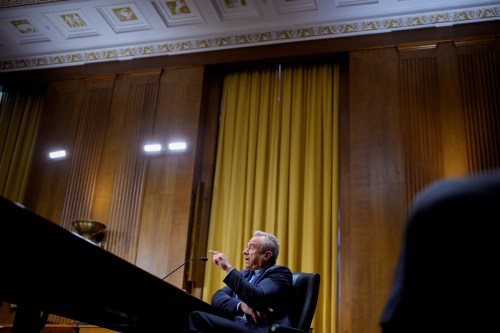



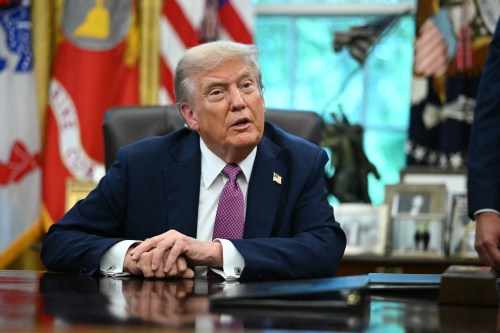
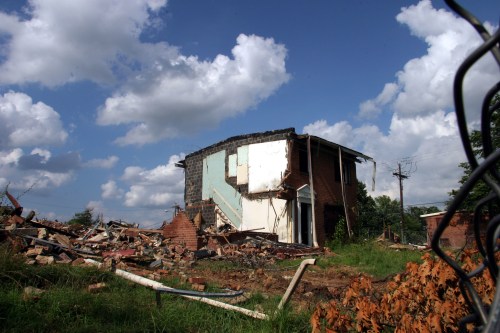


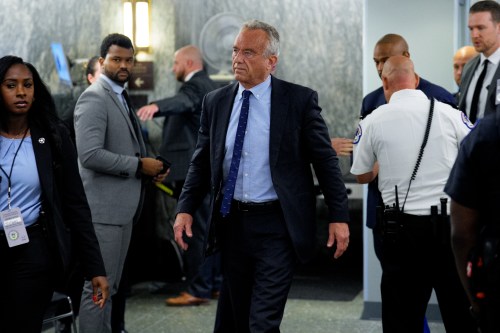

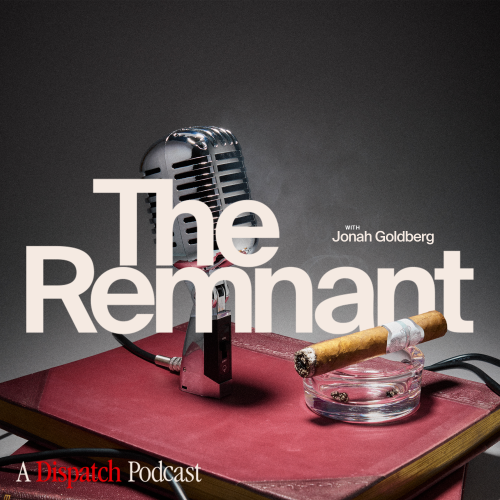






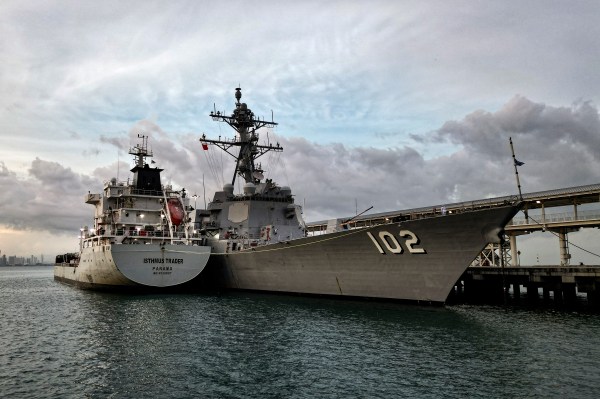
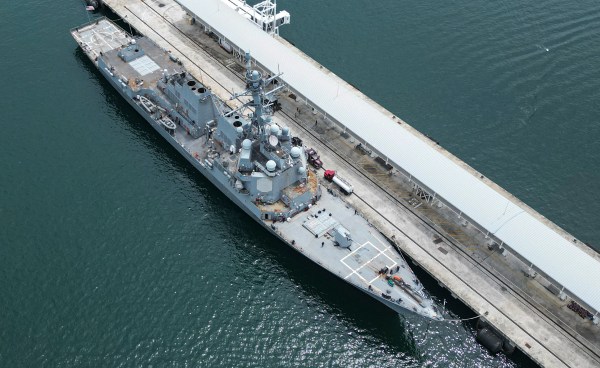
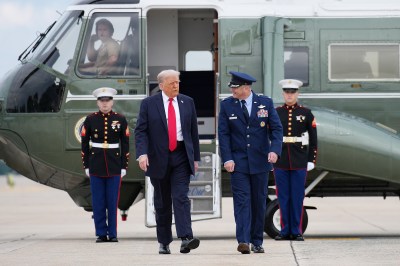
Please note that we at The Dispatch hold ourselves, our work, and our commenters to a higher standard than other places on the internet. We welcome comments that foster genuine debate or discussion—including comments critical of us or our work—but responses that include ad hominem attacks on fellow Dispatch members or are intended to stoke fear and anger may be moderated.
With your membership, you only have the ability to comment on The Morning Dispatch articles. Consider upgrading to join the conversation everywhere.